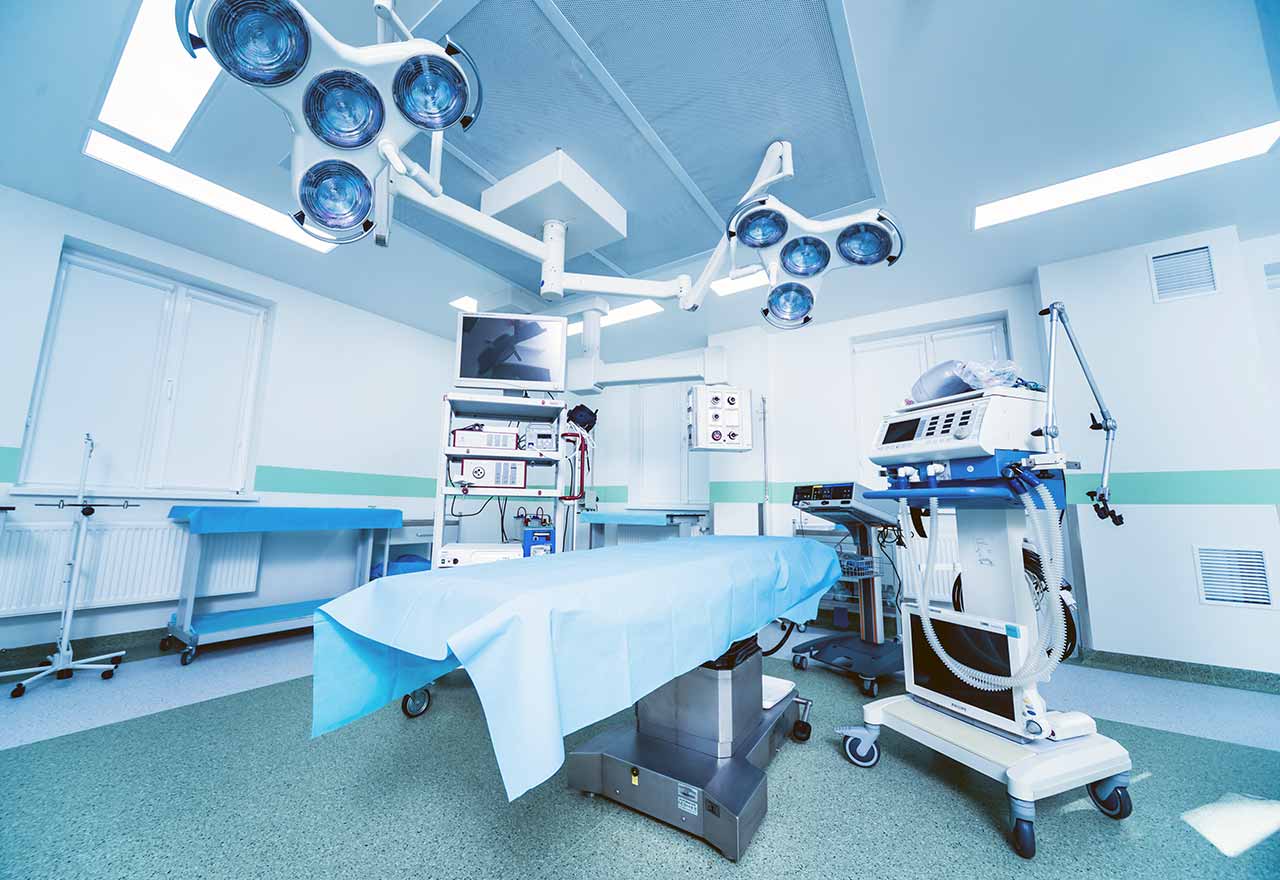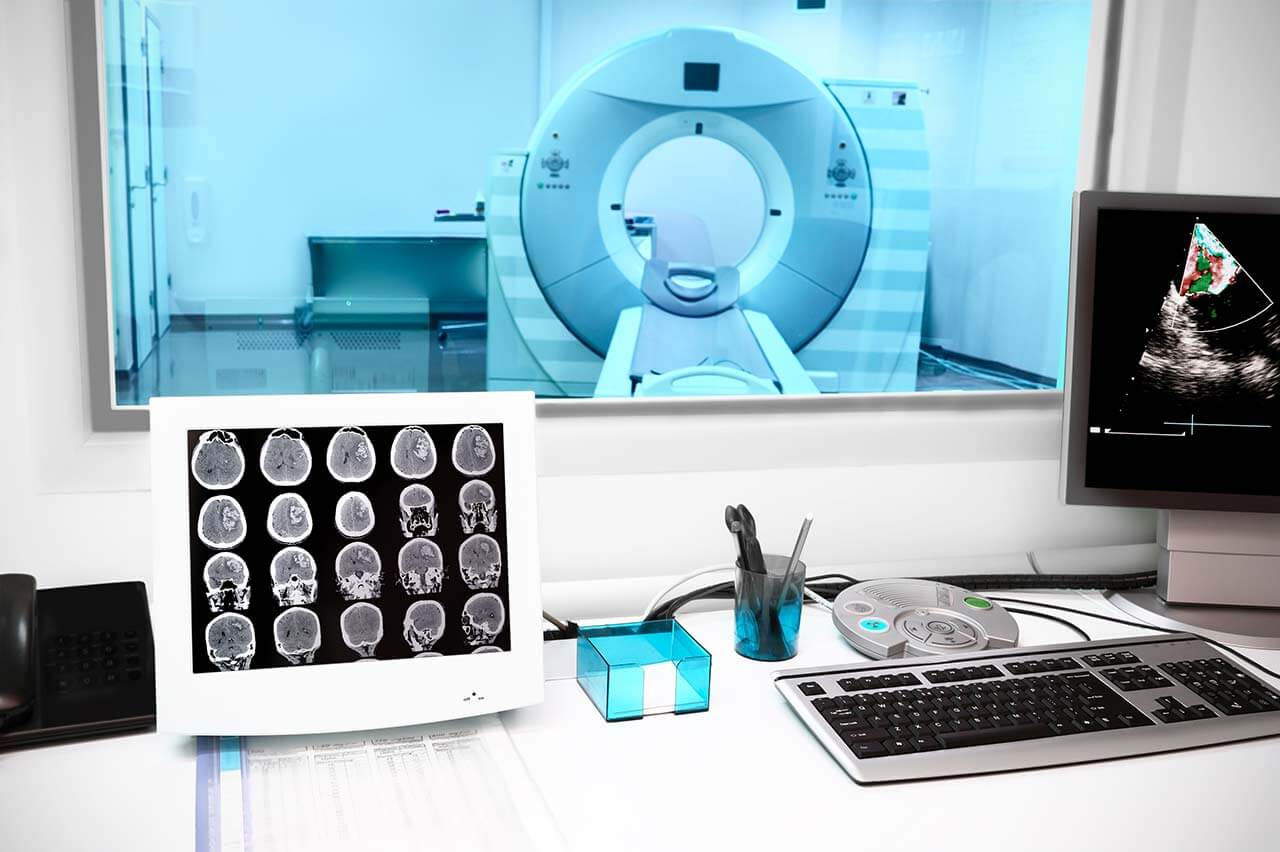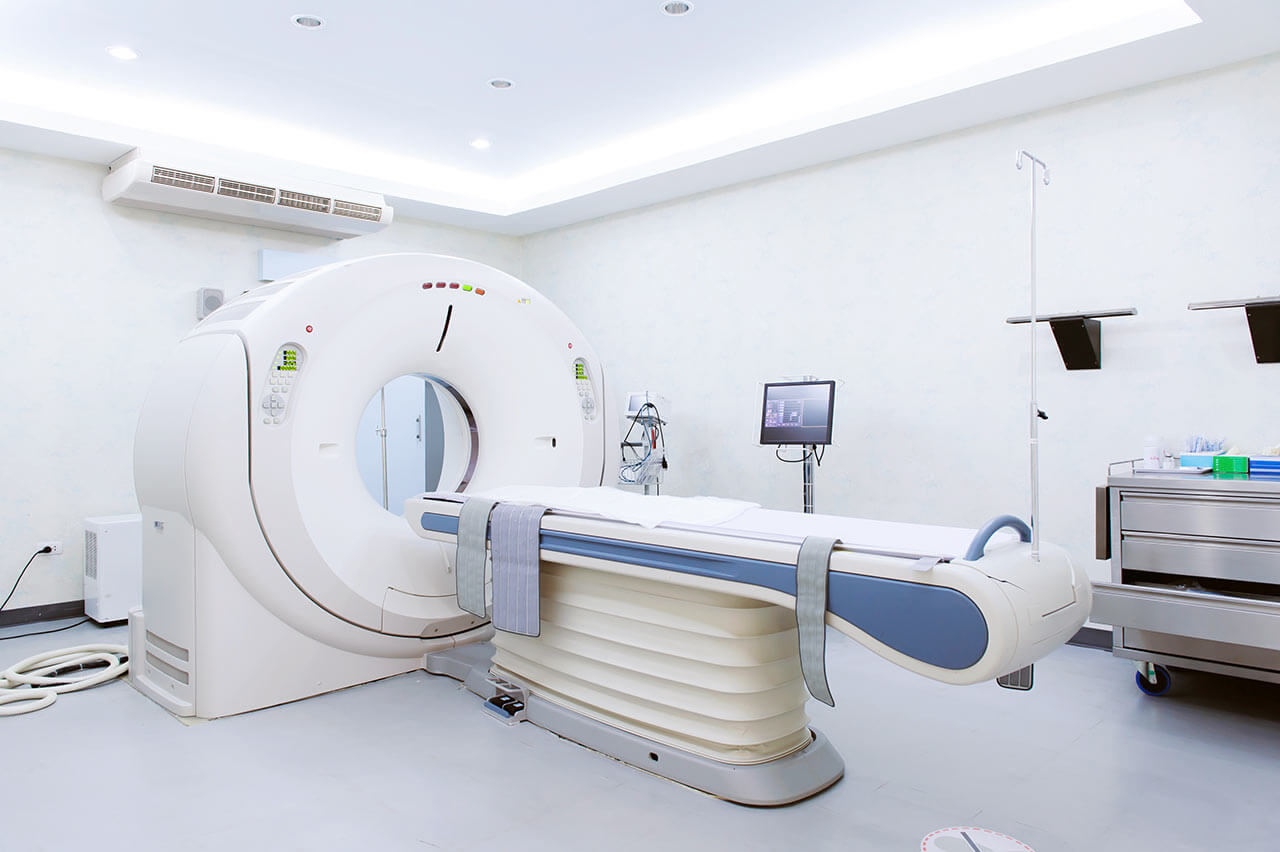
The program includes:
- Initial presentation in the clinic
- clinical history taking
- review of medical records
- physical examination
- laboratory tests:
- complete blood count
- biochemical analysis of blood
- indicators of inflammation
- indicators blood coagulation
- ophthalmologic examination
- preparation according to preoperative standard
- neoplasm resection with subsequent plastic repair of affected lid
- symptomatic treatment
- control examinations
- the cost of essential medicines and materials
- nursing services
- full hospital accommodation
- explanation of future recommendations
Required documents
- Medical records
- Biopsy results (if available)
Service
You may also book:
 BookingHealth Price from:
BookingHealth Price from:
About the department
The Department of Aesthetic, Plastic and Reconstructive Surgery at the University Hospital Hamburg-Eppendorf specializes in performing a full range of plastic surgical interventions. The medical facility opened its doors to patients for the first time in 2014 and since then has confidently held a leading position in the segment of top plastic surgery clinics in Germany. Reconstructive plastic surgery is performed here to eliminate defects after tumor resections, the consequences of injuries and infectious lesions, and congenital malformations. In the field of aesthetic plastic surgery, the key interest is in performing mammoplasty, abdominoplasty, brachioplasty, femoroplasty, gluteoplasty, body lift, liposuction, face lift, neck lift, otoplasty, and rhinoplasty. When planning a surgical procedure, the patient's wishes are taken into account as much as possible, and if necessary, computer-assisted modeling of the patient's appearance after plastic surgery is performed. Plastic surgeons pay due attention to a comprehensive diagnosis of the patient before the operation in order to completely eliminate health risks. They perform extensive laboratory tests, electrocardiography, ultrasound examinations, etc. The department's team of doctors has successfully performed tens of thousands of operations of various complexity, so patients can expect effective medical care in accordance with the highest standards of modern surgery. The department is headed by Prof. Dr. med. Marco Blessmann.
The main focus of the daily clinical practice of the surgeons in the department is the performance of reconstructive plastic procedures. Patients with defects caused by severe injuries and after tumor resections, as well as patients with chronic non-healing wounds, diabetic foot syndrome, bedsores, osteomyelitis, acne inversa, burns, hypertrophic and keloid scars most often seek medical attention in the department. When performing reconstructive plastic surgery, specialists use advanced surgical techniques. For example, wound debridement and vacuum therapy are applied to treat chronic non-healing wounds, and the correction of facial defects after tumor resection is performed using skin grafting and microsurgical tissue transfer.
The department's team of surgeons has extensive experience in breast plastic surgery, both reconstructive and aesthetic. Reconstructive mammoplasty is most often performed after radical surgical treatment for breast cancer: specialists restore breast volume using expanders, silicone implants, or autologous fat lipofilling (whenever possible, the latter is preferred because it provides the most natural result). They also perform nipple and areola reconstruction surgery. The surgical possibilities in this area are complemented by plastic repair of breast malformations, the most common of which are tubular breasts, Poland syndrome, amastia (congenital absence of one or both mammary glands), and athelia (congenital absence of nipples). The department also operates on men with gynecomastia, which is an abnormal benign enlargement of one or both mammary glands.
The medical facility offers a wide range of aesthetic plastic surgery services. The surgeons skillfully perform tummy tuck, arm lift, thigh lift, buttock lift, body lift, liposuction, breast augmentation, breast lift, face lift, neck lift, otoplasty, and rhinoplasty. Aesthetic plastic surgery is performed using minimally invasive techniques, ensuring a high level of safety, minimal surgical risks, and excellent cosmetic results. The department also offers non-surgical rejuvenation procedures, the most popular of which are wrinkle treatment with Botox, hyaluronic acid, or autologous fat injections. Doctors select the optimal filler for each patient, taking into account the type of wrinkles, their depth, skin type, and age of the patient. The department also offers injection lipolysis. This is a highly effective procedure for eliminating localized fat deposits without surgery. Injection lipolysis is most often used to correct a double chin and to locally destroy fat deposits on the cheeks.
The range of medical services provided by the department includes the following:
- Reconstructive plastic surgery
- Debridement (surgical wound cleansing)
- Vacuum therapy for the treatment of chronic non-healing wounds
- Plastic surgery with skin flaps
- Autodermoplasty (skin grafting)
- Microsurgical tissue transfer (fat, bone, muscle, etc.)
- Scar revision
- Reconstructive breast surgery after mastectomy, including nipple and areola reconstruction
- Reconstructive breast surgery for the elimination of breast asymmetry and correction of congenital breast malformations
- Treatment of gynecomastia in men
- Reconstructive plastic surgery for facial nerve paralysis (Bell's palsy)
- Sex reassignment surgery
- Aesthetic plastic surgery
- Body aesthetic plastic surgery
- Abdominoplasty
- Brachioplasty
- Femoroplasty
- Gluteoplasty
- Body lift
- Liposuction
- Mammoplasty: breast augmentation, breast reduction, and breast lift
- Facial aesthetic plastic surgery
- Face lift
- Midface lift
- Neck lift
- Forehead lift
- Blepharoplasty
- Otoplasty
- Rhinoplasty
- Injection cosmetic procedures
- Injection lipolysis
- Treatment of wrinkles with Botox, hyaluronic acid, and autologous fat injections (lipofilling)
- Intimate plastic surgery
- Labiaplasty (correction of the size and shape of the labia)
- Body aesthetic plastic surgery
- Other surgical options
Curriculum vitae
Higher Education and Professional Career
- 1992 Medical studies, Philipps University of Marburg.
- 2001 Doctorate in Medicine, University of Hamburg; dentistry studies at the University of Hamburg; internship, Department of Oral and Maxillofacial Surgery, University Hospital Hamburg-Eppendorf.
- 2002 Doctorate in Dentistry, University of Hamburg.
- 2003 Assistant Physician, Department of Oral and Maxillofacial Surgery, University Hospital Hamburg-Eppendorf.
- 2005 Thesis defense in Medicine and Dentistry, summa cum laude.
- 2006 Board certification in Oral and Maxillofacial Surgery.
- 2007 Surgeon, Department of Oral and Maxillofacial Surgery, University Hospital Hamburg-Eppendorf.
- 2009 Board certification in Plastic Surgery; habilitation at the Faculty of Medicine of the University of Hamburg; Venia legendi.
- 2010 Surgeon and Deputy Head Physician, Department of Oral and Maxillofacial Surgery, University Hospital Hamburg-Eppendorf; Surgeon, Department of Aesthetic, Plastic and Reconstructive Surgery at the University Hospital Hamburg-Eppendorf, the Trauma Clinic Hamburg, and the Agaplesion Clinic Hamburg.
- Since 2014 Professorship at the University of Hamburg; Head Physician, Department of Aesthetic, Plastic and Reconstructive Surgery, University Hospital Hamburg-Eppendorf.
Memberships in Professional Societies
- German Society for Plastic and Reconstructive Surgery (DGPW).
- Professional Association for Plastic and Reconstructive Surgery (BVPRC).
- German Society for Oral and Maxillofacial Surgery (DGMKG).
- European Association for Cranio-Maxillo-Facial Surgery (EACMFS).
Photo of the doctor: (c) Universitätsklinikum Hamburg-Eppendorf (UKE)
About hospital
According to the Focus magazine, the University Hospital Hamburg-Eppendorf is one of the top ten hospitals in Germany!
Since its foundation in 1889, the hospital has taken a leading position in the European medical arena, which it still holds today. A highly competent medical team of more than 15,300 employees takes care of the health of patients. Approximately 2,900 of them are physicians and researchers, and more than 3,400 work as nurses and therapists. The hospital has 1,738 beds for inpatient treatment, and many diagnostic and therapeutic services are provided on an outpatient basis. A solid foundation for successful clinical practice in the medical complex is formed by a combination of research achievements with state-of-the-art equipment and the highest professionalism of doctors. In addition, the hospital has a modern and extremely comfortable infrastructure. The most important value for every employee of the University Hospital Hamburg-Eppendorf is the health and well-being of every patient.
The medical facility was the first university hospital in Europe to implement an electronic system for storing patient medical reports. As a result, all diagnostic and treatment protocols are stored electronically. In 2011, the hospital was certified as the first fully digital hospital in Europe.
The hospital represents all areas of modern medicine. The doctors of the healthcare facility have a wealth of theoretical knowledge and vast clinical experience, which allows them to easily cope with the treatment of both common and extremely rare, complex clinical cases. About 550,000 patients are treated here each year, over 450,000 of whom receive outpatient medical care.
An important part of the work of the University Hospital Hamburg-Eppendorf is research activities aimed at developing innovative diagnostic and treatment methods. The main areas of research of the hospital include neurobiology, oncology, cardiovascular research, and research on infectious and inflammatory diseases. Special attention is also given to research in molecular imaging and skeletal biology.
The hospital is distinguished by its first-class level of medical care, which is confirmed by numerous quality certificates of European and international standards: DIN EN IS0 9001 certificate, certificates of the German Cancer Society (DKG) in the treatment of breast cancer, colon cancer, gynecological cancer, prostate cancer, and other oncological diseases, certificate of the German Cardiac Society (DGK) in the treatment of acute coronary syndrome, certificate of the German Spine Society (DWG), and others.
Photo: (с) depositphotos
Accommodation in hospital
Patients rooms
The patients of the University Hospital Hamburg-Eppendorf stay in comfortable single and double bright rooms with a modern design. Each patient room has an ensuite bathroom with a shower and a toilet. The standard patient room furnishings include an automatically adjustable bed with an orthopedic mattress, a bedside table, a wardrobe, a table and chairs for receiving visitors, a telephone, a radio, and a TV. Wi-Fi access is available in patient rooms and throughout the hospital.
If desired, patients can stay in single enhanced-comfort rooms. These rooms are more spacious and are equipped with upholstered furniture, a safe, and a mini-fridge.
Meals and Menus
The hospital offers three meals a day: breakfast, lunch, and dinner. Breakfast and dinner are served in the form of buffets, and for lunch you can choose from several set menus – in total, more than 20 dishes are served for lunch, including vegetarian ones.
If, for some reason, you cannot eat all of the foods, you will be offered an individual menu. Please inform the medical staff about your dietary preferences prior to the treatment.
Further details
Standard rooms include:
![]() Toilet
Toilet
![]() Shower
Shower
![]() Wi-Fi
Wi-Fi
![]() TV
TV
Religion
Religious services are available upon request.
Accompanying person
During the inpatient program, an accompanying person may stay with you in a patient room or hotel of your choice.
Hospital accommodation
During the outpatient program, you may stay in a hotel at the hospital.
Hotel
During the outpatient program, you may stay in a hotel of your choice. Managers will help you choose the most suitable options.
The hospital offers a full range of laboratory tests (general, hormonal, tests for infections, antibodies, tumor markers, etc.), genetic tests, various modifications of ultrasound scans, CT scans, MRI and PET / CT, angiography, myelography, biopsy and other examinations. Treatment with medications, endoscopic and robotic operations, stereotaxic interventions is carried out here, modern types of radiation therapy are also used. The hospital offers patients all the necessary therapeutic techniques.
- Coiling and clipping of aneurysms of different localizations
- Transjugular intrahepatic portosystemic shunting in patients with portal hypertension
- Minimally invasive surgeries (da Vinci)
- Removal and reconstruction of mammary glands
- Hyperthermic intraperitoneal chemotherapy (HIPEC)
These are arteriovenous malformations and angiomas, vascular aneurysms, pathologies of the mammary glands, pelvic organ prolapse, urinary incontinence, malignant tumors of various localizations (area of special attention is treatment of intestinal cancer), pathologies of liver and pancreas, cataracts and rare ophthalmic pathologies (aphakia, aniridia ), infertility and other diseases.
- Interventional neuroradiology
- Mammology
- Oncology
- Gastroenterology
- Surgery
Over 2,900 highly qualified physicians and researchers work at the hospital.





